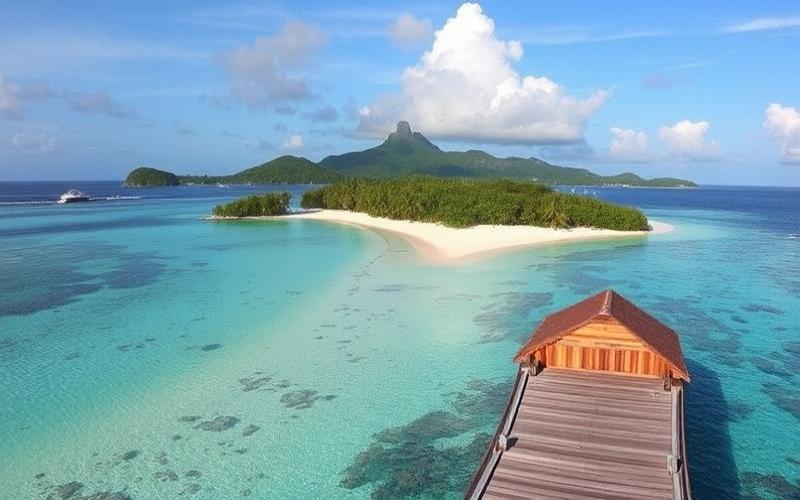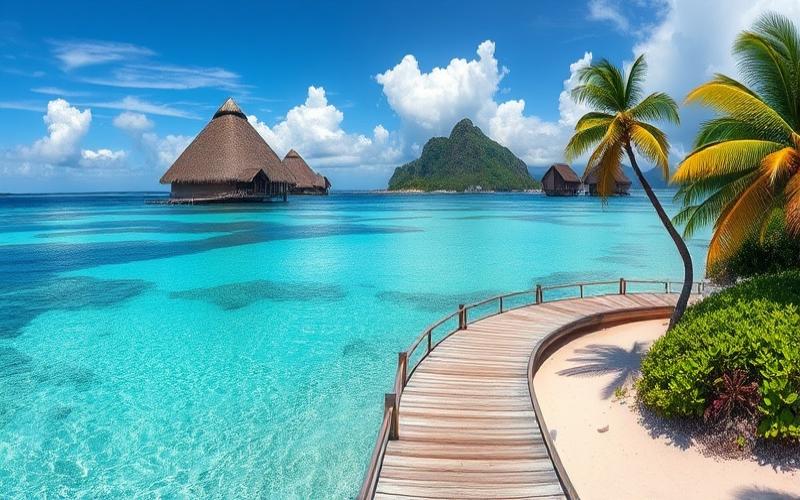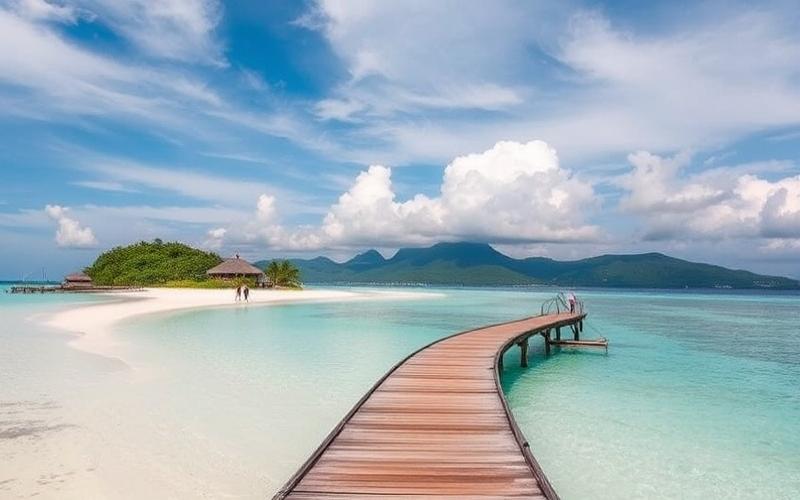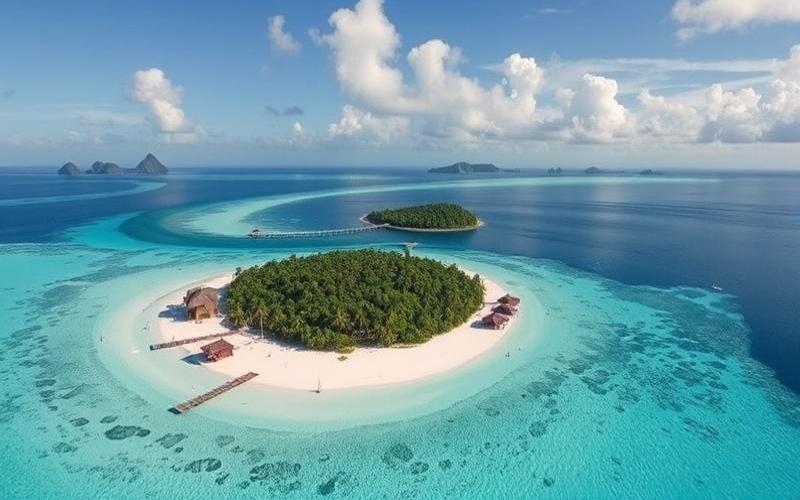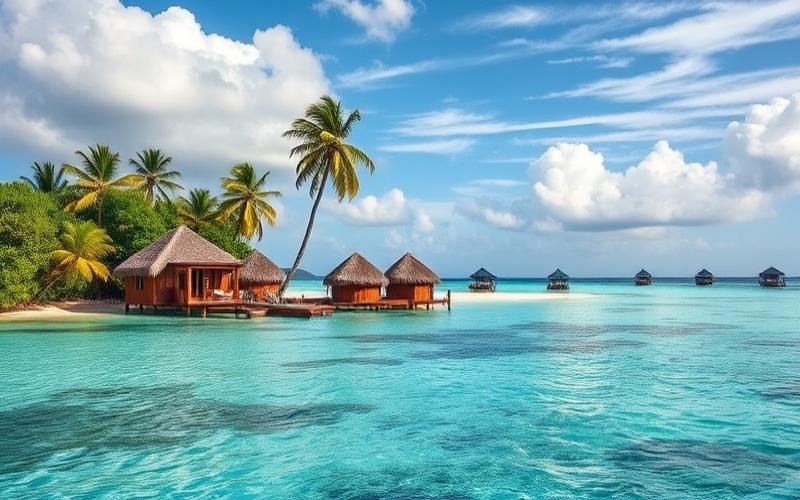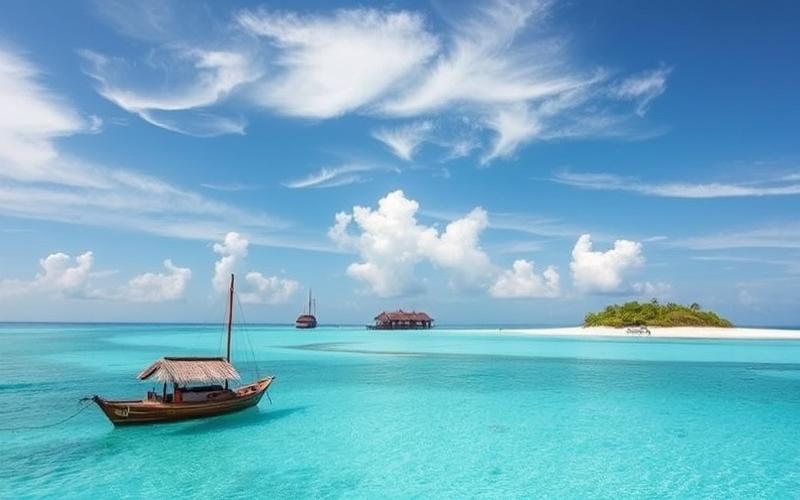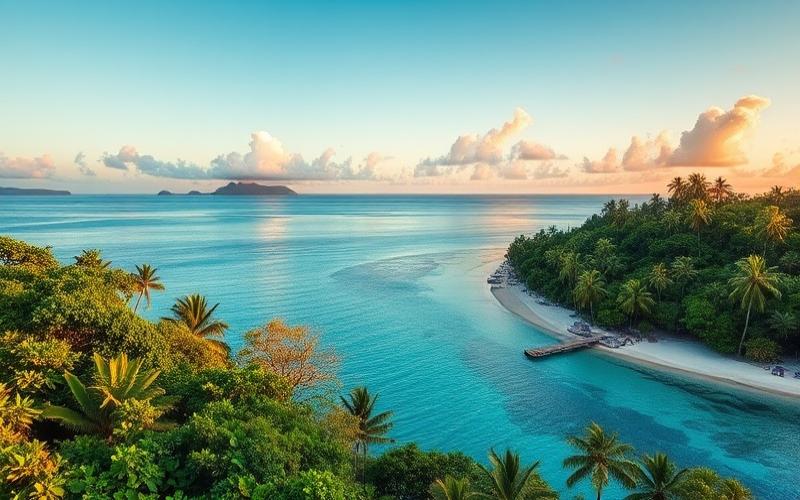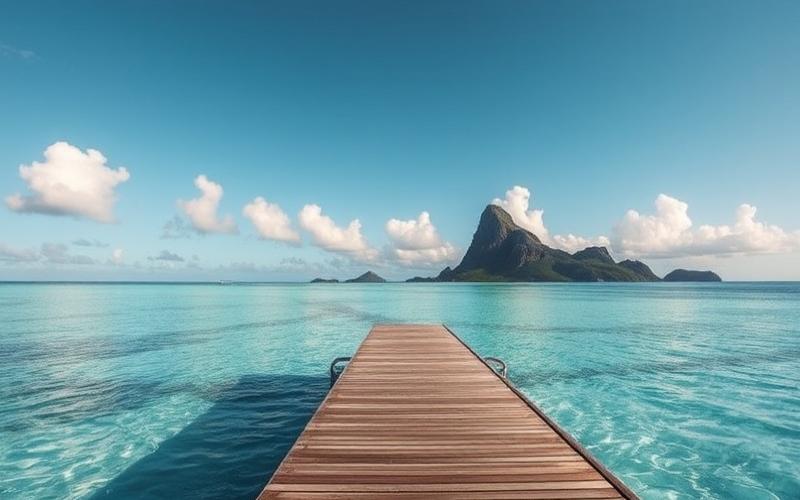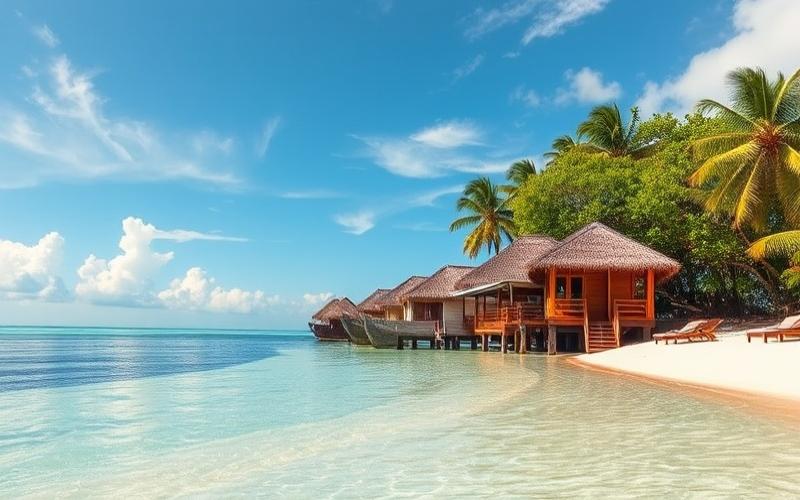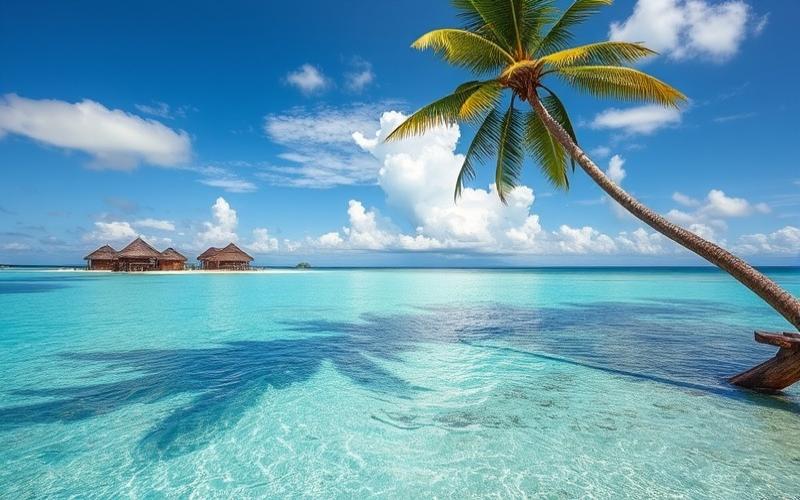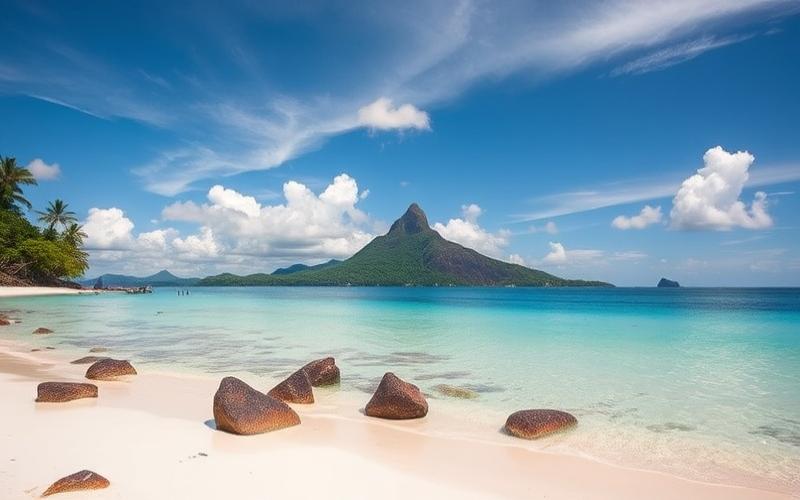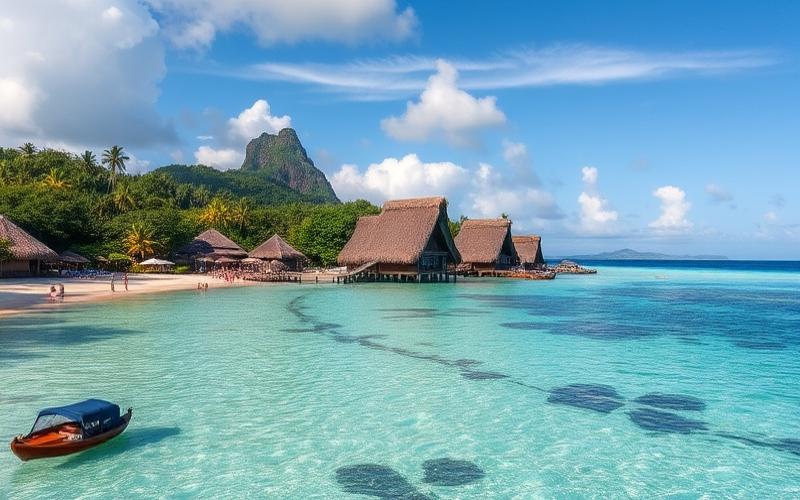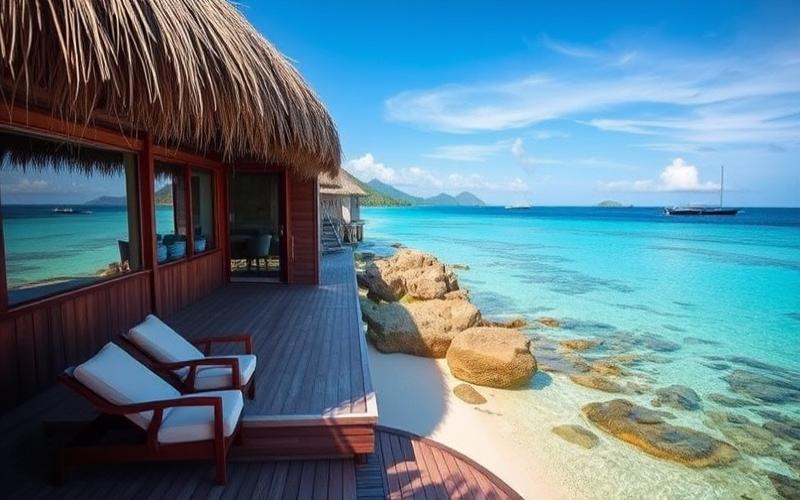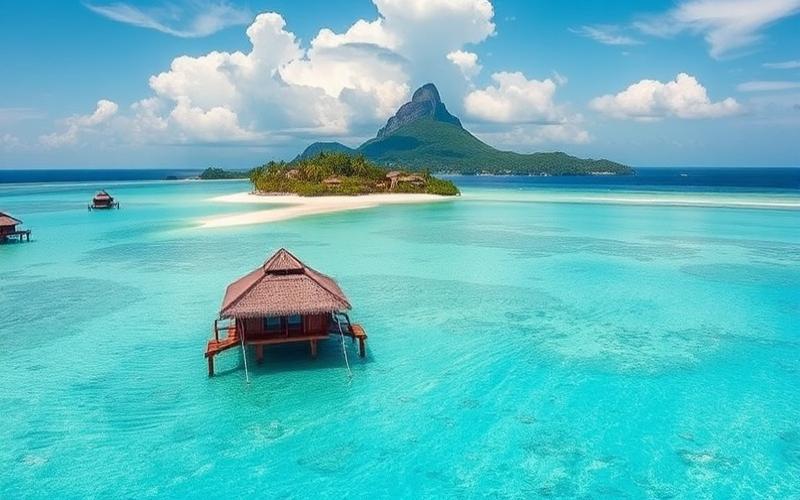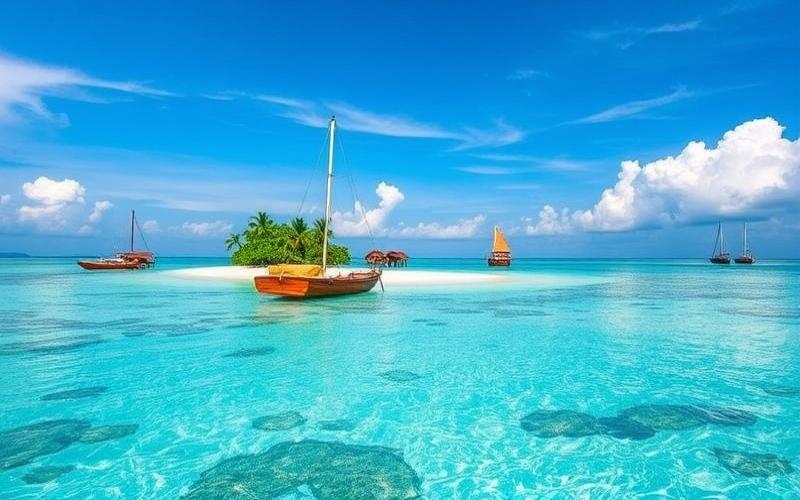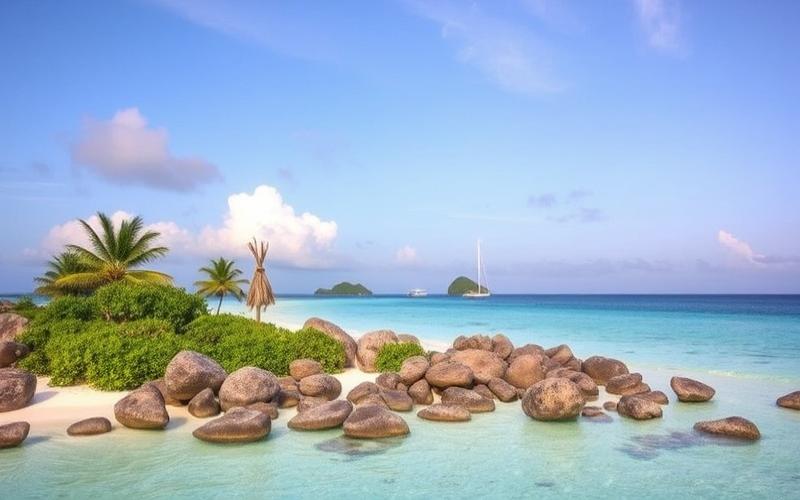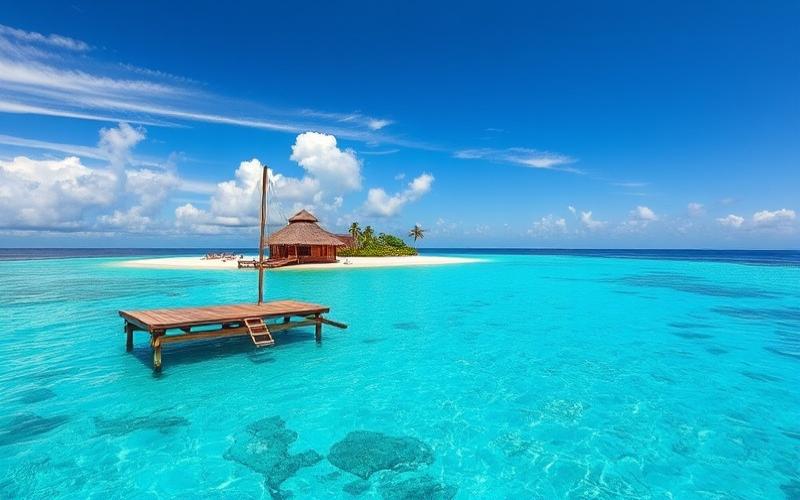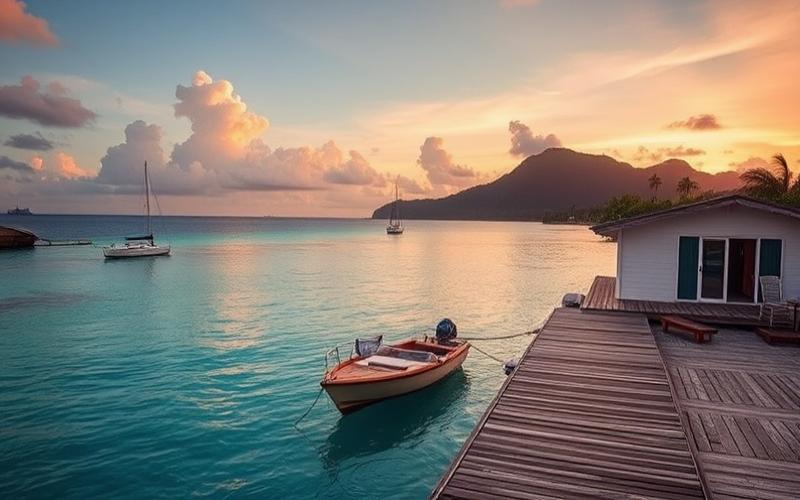
 Published on and written by Cyril Jarnias
Published on and written by Cyril Jarnias
Relocating to the Seychelles means choosing a paradise-like living environment, but also a tropical climate that may require some adaptation. This Indian Ocean archipelago offers a unique setting with its white sand beaches, turquoise waters, and lush vegetation. However, to fully enjoy this experience, it’s essential to understand the local climate characteristics and prepare adequately. In this article, we provide a comprehensive guide to help you smoothly acclimate to the Seychellois climate while maintaining your health and daily well-being.
Understanding the Seychelles Climate
The Seychelles enjoy a tropical climate characterized by warm temperatures and high humidity throughout the year. Unlike many tropical destinations, the archipelago experiences two main seasons, each with its own characteristics:
The dry season: Typically extends from May to October. During this period, temperatures are slightly cooler, with averages ranging between 24°C and 28°C. Humidity is less pronounced, and rainfall is rare, making it the ideal season for enjoying beaches and outdoor activities.
The rainy season: From November to April, the Seychelles experience their wet season. Temperatures are higher, reaching up to 32°C, and humidity is at its peak. This period is marked by frequent but generally brief showers, followed by beautiful clear skies.
It’s important to note that the Seychelles climate is influenced by its privileged geographical position, just outside the cyclone belt. This location protects the archipelago from the devastating storms that regularly hit other regions of the Indian Ocean, providing a relatively stable environment throughout the year.
Good to know:
Despite the division into two distinct seasons, the Seychelles climate remains pleasant year-round, with relatively small temperature variations. This climatic stability is a major advantage for expatriates, allowing for easier adaptation and long-term activity planning.
Climate Impacts on Health and Well-being
The tropical climate of the Seychelles can have significant effects on expatriates’ health and well-being, particularly for those coming from more temperate regions. Here are the main aspects to consider:
Physiological Acclimatization
Adapting to the Seychelles’ hot and humid climate can take several weeks, or even months for some people. During this period, it’s common to experience:
– Increased fatigue – More abundant sweating – Sleep disturbances – Decreased appetite
These symptoms are usually temporary and gradually disappear as the body adapts to its new environment. To facilitate this acclimatization, it’s recommended to:
- Drink plenty of water to stay hydrated
- Limit intense physical activities during the first weeks
- Prioritize light and balanced meals
- Maintain regular sleep cycles
Specific Health Risks
The tropical climate of the Seychelles can promote the development of certain diseases or medical conditions:
Dehydration: Constant heat and humidity increase dehydration risks, particularly among elderly people and children. It’s crucial to drink regularly, even without feeling thirsty.
Mosquito-borne diseases: Although the Seychelles are considered a low-risk destination for malaria, other diseases like dengue or chikungunya may be present. Protection against mosquito bites is essential, especially during the rainy season.
Skin conditions: High humidity can promote the development of fungal infections or skin infections. Rigorous hygiene and wearing appropriate clothing are recommended.
Heat stroke: Non-acclimated expatriates are particularly vulnerable to heat stroke during the first months. It’s important to recognize the signs (headaches, dizziness, nausea) and know how to react quickly.
Good to know:
The Seychelles have a relatively developed healthcare system, with hospitals and clinics offering quality care. However, it’s strongly recommended to obtain international health insurance before your relocation to cover all potential risks.
Daily Adaptation Strategies
To live comfortably in the Seychelles and fully enjoy your expatriation, it’s essential to adopt habits suited to the local climate. Here are some practical tips for organizing your daily life:
Managing Heat and Humidity
Clothing choices: Opt for light, breathable fabrics in light colors. Cotton, linen, and synthetic materials designed for sweat evaporation are ideal. Don’t forget to protect yourself from the sun with wide-brimmed hats and sunglasses.
Schedule adaptation: Plan your outdoor activities early in the morning or late afternoon to avoid the hottest hours of the day. Take advantage of the relative coolness of the evening for social activities.
Constant hydration: Always keep a water bottle with you and drink regularly, even if you don’t feel thirsty. Cold drinks made from local fruits are excellent for quenching thirst.
Adapted diet: Prioritize light meals rich in fruits and vegetables. Local dishes, often based on fish and seafood, are perfectly suited to the climate.
Home Arrangements
Air conditioning and ventilation: An air conditioning system is almost essential to maintain comfortable indoor temperatures, especially in bedrooms for restful sleep. However, be careful not to create too much contrast with outdoor temperatures to avoid thermal shock.
Sun protection: Install thick curtains or blinds to block the sun’s heat during the hottest hours. Outdoor awnings can also be effective for keeping cool.
Material choices: If you have the opportunity to choose or arrange your accommodation, opt for materials that promote coolness, such as tiled floors.
Outdoor spaces: Create shaded areas in your garden or on your terrace to enjoy the outdoors even during hot hours.
Good to know:
Energy consumption related to air conditioning can be high in the Seychelles. Consider adopting eco-friendly practices, such as using fans in addition to air conditioning, to reduce your environmental impact and electricity bills.
Preparing for Extreme Weather Conditions
Although the Seychelles are relatively spared from violent weather phenomena, it’s important to prepare for certain potentially dangerous situations, especially during the rainy season.
Floods and Landslides
Heavy rains can sometimes cause localized flooding, particularly in low-lying areas. To minimize risks:
- Choose housing located on higher ground if possible
- Ensure your home has a good drainage system
- Prepare an emergency kit containing drinking water, non-perishable food, a flashlight, and a battery-powered radio
- Stay informed about weather reports and alerts issued by local authorities
- Avoid traveling during heavy rains, especially in at-risk areas
Cyclones and Tropical Storms
Although the Seychelles are rarely directly hit by cyclones, they can experience indirect effects from these weather phenomena. It’s therefore important to be prepared:
- Familiarize yourself with evacuation procedures in your residential area
- Reinforce your home’s openings (doors, windows) during alerts
- Build up water and food reserves for several days
- Plan for alternative communication methods in case of network outages
- Follow authorities’ instructions scrupulously during cyclone alerts
Sea Level Rise and Coastal Erosion
Climate change poses particular challenges for the Seychelles, especially regarding sea level rise and coastal erosion. If you’re considering buying property or settling long-term, take these risks into account when choosing your location.
Good to know:
Seychellois authorities are aware of climate change challenges and are implementing adaptation strategies. Inquire about long-term development plans in your residential area to anticipate future changes.
Enjoying the Seychellois Climate: Adapted Activities and Leisure
The tropical climate of the Seychelles offers numerous opportunities to fully enjoy nature and outdoor activities. Here are some suggestions for making the most of your environment:
Water Activities
The warm, crystal-clear waters of the Seychelles are ideal for a multitude of water activities:
Scuba diving and snorkeling: Explore colorful coral reefs and rich marine life. Visibility is generally better during the dry season.
Surfing and kitesurfing: Some beaches offer perfect conditions for these sports, particularly during the southeast monsoon (May to September).
Fishing: Whether coastal fishing or big game fishing, the Seychelles are a paradise for fishing enthusiasts.
Hiking and Nature Discovery
The islands’ interiors offer magnificent hiking opportunities:
National parks: Visit Morne Seychellois National Park on Mahé or Praslin National Park to discover the Seychelles’ unique flora and fauna.
Bird watching: The Seychelles are home to many endemic species. The Aride Island Nature Reserve is particularly renowned for its birdlife.
Cultural and Culinary Activities
Local markets: Take advantage of the morning coolness to visit colorful markets and discover tropical fruits and spices.
Creole cooking classes: Learn to prepare local dishes, perfectly adapted to the hot climate.
Festivals: Participate in the many festivals that animate the archipelago throughout the year, celebrating Seychellois culture and traditions.
Good to know:
Practicing outdoor activities in the Seychelles requires good sun protection and constant hydration. Never forget your sunscreen, hat, and water bottle, even for short outings.
Conclusion: Embracing the Tropical Lifestyle
Adapting to the Seychelles climate is a rewarding adventure that requires time, patience, and some flexibility. By following the practical advice presented in this article, you’ll be well equipped to meet climate challenges and fully enjoy your expatriation in this tropical paradise.
Remember that adaptation is a gradual process. Don’t get discouraged if you experience some difficulties at first. Over time, you’ll naturally develop new habits and discover the many advantages of living in a tropical environment.
Finally, don’t forget that the Seychelles climate is intrinsically linked to its unique and fragile ecosystem. As an expatriate, you have the responsibility to contribute to preserving this exceptional environment. Adopt eco-friendly practices, respect local nature, and participate in conservation initiatives. This way, you won’t just adapt to the Seychelles climate—you’ll become a true ambassador for this little paradise on Earth.
Disclaimer: The information provided on this website is for informational purposes only and does not constitute financial, legal, or professional advice. We encourage you to consult qualified experts before making any investment, real estate, or expatriation decisions. Although we strive to maintain up-to-date and accurate information, we do not guarantee the completeness, accuracy, or timeliness of the proposed content. As investment and expatriation involve risks, we disclaim any liability for potential losses or damages arising from the use of this site. Your use of this site confirms your acceptance of these terms and your understanding of the associated risks.

